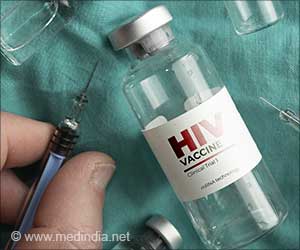A new study has found that the co-localization of tuberculosis disease and HIV in lymphatic tissues leads to the emergence of potent HIV antibodies.

Tuberculosis and HIV: Time for an Intensified Response
Tuberculosis is extremely common, especially in regions of the world with high levels of ongoing HIV transmission (1✔ ✔Trusted SourceTuberculosis and HIV Coinfection
Go to source), and impacts both the immune responses and the characteristics of the circulating virus in people living with HIV so we must understand the relationship between the two.
‘The status of tuberculosis disease in HIV patients indicate the future use of HIV vaccines and antibody-based HIV therapeutics as prophylaxis or treatment.’





High ongoing HIV transmission in areas of the world with frequent tuberculosis disease suggests that a potential vaccine that elicits broad and potent antibodies may not work because some geographic regions are more likely to have antibody-resistant strains (2✔ ✔Trusted SourceDeterminants of Tuberculosis Infection among Adult HIV Positives Attending Clinical Care in Western Ethiopia: A Case-Control Study
Go to source).
Researchers worked closely with investigators in Uganda and at the AIDS Clinical Trial Group (ACTG) to collect samples from people newly diagnosed with HIV that either did or did not have tuberculosis.
From these individuals, they examined samples collected before and about 6 months after the start of HIV medications. Researchers compared antibodies, plasma inflammatory markers, and HIV sequences in the baseline and treatment samples.
Researchers highlight that this study has implications for HIV vaccine strategies as they aim to generate antibodies that can block the virus after exposure. Generating broad and potent HIV antibodies has not been accomplished and remains a monumental challenge (3✔ ✔Trusted Source
Mycobacterium tuberculosis disease associates with higher HIV-1-specific antibody responses
Go to source).
But Tuberculosis disease generates broadly potent antibody responses and dissecting biological pathways that provide insight into how tuberculosis enhances HIV antibody responses could be leveraged to develop novel strategies for eliciting broad and potent HIV antibodies.
Advertisement
- Tuberculosis and HIV Coinfection - (https://www.ncbi.nlm.nih.gov/pmc/articles/PMC4484961/)
- Determinants of Tuberculosis Infection among Adult HIV Positives Attending Clinical Care in Western Ethiopia: A Case-Control Study - (https://www.hindawi.com/journals/art/2013/279876/)
- Mycobacterium tuberculosis disease associates with higher HIV-1-specific antibody responses - (https://www.cell.com/iscience/fulltext/S2589-0042(23)00708-3)
Source-Eurekalert














